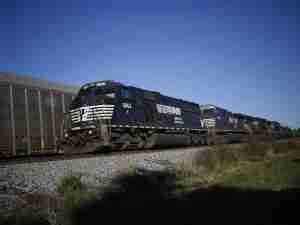The Regional Autonomous Corporation of Cesar, which oversees environmental issues and whose decisions are binding, ordered Fenoco to stop transport in areas where it passed less than 100 meters from communities between the hours of 2230 and 0430 so residents' sleep would not be disturbed.
Fenoco -- whose shareholders include Glencore International Plc's Prodeco unit, Drummond International and Goldman Sachs Group Inc's units -- received the resolution dated Dec. 10 on Tuesday, sources said.
Sources close to the companies said Fenoco was still moving coal by night as well as by day and that the company would meet with government officials including the National Environmental Licensing Authority, known as ANLA.
Under Colombia's system, ANLA can overturn the resolution.
Kaleb Villalobos, director general of the regional environmental authority in Cesar province, known as CORPOCESAR, said Fenoco should have already abided by the decree.
The body is sending personnel to the area to monitor if Fenoco is still moving coal at night, he told Reuters.
It is not yet clear if Fenoco will be subject to fines or penalties if it is continuing to run the trains at night.
Fenoco, which moves trains around the clock, did not immediately respond to request for comment.
Fenoco's shareholders are among the biggest coal exporters in Colombia, and the railway was hit this year by a five-week labor strike, which shut off more than half of shipments from the world's No. 4 coal exporter.
Daily coal supply to ports served by Fenoco is up to 160,000 tons and the railroad has an annual capacity of about 42 million tons, according to the company.
In July and August, workers went on strike for five weeks over pay and working conditions, and the companies have been working hard since to make up shipments.
The Andean country's mining sector has suffered this year from labor strikes, delays in environment permits and a rise in guerrilla attacks against installations.
More than a decade of U.S.-backed strikes against leftist rebels and drug lords have attracted billions of dollars in investment mainly into the oil and mining sectors, whose production have hit historic highs in the last few years.
The flood of foreign investors into Colombia has presented the government with a new host of challenges including institutional strains and growing demands from environmental and social groups. (Reuters)









